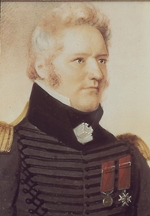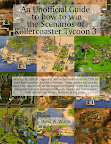Regency Personalities Series
In my attempts to provide us with the details of the Regency, today I continue with one of the many period notables.
Lieutenant Colonel Charles-Michel d’Irumberry de Salaberry
November 19, 1778 – February 27, 1829)

Charles-Michel d’Irumberry de Salaberry
Lieutenant Colonel Charles-Michel d’Irumberry de Salaberry was Born at the manor house of Beauport (east of Quebec City) in Lower Canada on November 19, 1778, the son of Ignace-Michel-Louis-Antoine d’Irumberry de Salaberry. Charles was one of four sons in a family with a long tradition of military service. Generations of the family had served as officers of the royal army in France and then in the New World. When the British acquired New France in 1763, the family continued its military traditions in British service. Charles-Michel’s father, Ignace de Salaberry, was Seigneur de Chambly et de Beaulac, and was also a British officer who had fought in the defence of Quebec during the American Revolutionary war and later served as a member of the Legislative Assembly of Lower Canada and the Legislative Council of Lower Canada.
At the age of 14, Charles-Michel followed his father’s footsteps into the 44th Regiment of the British army. He saw action with the 60th regiment in the West Indies, where he was cited for bravery, and in the Netherlands. He earned his commission as Captain-Lieutenant in 1799 and was given a company command in 1803, continuing to serve in Europe and the West Indies. While stationed at Jamaica, de Salaberry was directly involved in a bitter duel, retold by Philippe-Joseph Aubert de Gaspé:
The officers of the 60th Regiment, of which Charles-Michel de Salaberry was Lieutenant, were of different nationalities, English, Prussians, Swiss, Hanoverians, and two French-Canadians, Lieutenants de Salaberry and DesRivières. It was difficult to preserve harmony among them — the Germans especially being passionate, quarrelsome, and duellists. One morning, de Salaberry was sitting at breakfast with some of his brother officers, when one of the Germans entered, and looking at him with an insulting air, said, “I have just come from sending a French Canadian to the other world!” meaning that he had just killed Lt. Thomas-Hippolyte Trottier DesRivières (stepson of James McGill) in a duel. De Salaberry sprang like a tiger from his seat; but instantly calming himself, said, “We will finish breakfast, and then you shall have the pleasure of finishing another French Canadian.” They fought, as was then the custom, with swords; both were noted for their great skill, and the contest was long and obstinate.
De Salaberry was very young; his antagonist more aged, and a rough bully. The young Canadien received a wound on his forehead, which time never effaced, and as it bled freely and interfered with his sight, friends attempted to stop the conflict; but he would not consent, but binding his handkerchief round his head, recommenced the fight with greater fury. At length his adversary fell mortally wounded.
In 1810, de Salaberry was recalled to Canada with the rank of Lieutenant-Colonel. He served as aide-de-camp to Major General Francis de Rottenburg, but in 1812 he was appointed to command a new corps of volunteers, the Canadian Voltigeurs (light infantry) and became a chief of staff for the militia. Les Voltigeurs were essentially militia men, but de Salaberry trained them as regulars similar to the Fencible units raised in Upper Canada. He even paid for some of their equipment out of his own pocket. The reason for this exceptional group, was his respect for French Canadians, who in general did not want to fight among British soldiers (the same people they fought only 52 years earlier). The instructions were still in the English language, but soldiers used French. De Salaberry’s military heritage was reflected in his strict code of discipline and honour. The professionalism and high expectations he held for his fellow Canadiens was repaid by the respect and loyalty of his troops.
In November 1812, during the War of 1812, de Salaberry commanded the advance guard of the force that turned away Henry Dearborn’s northern attack at Lacolle Mill. Later, some of his Voltigeurs took part in the decisive Battle of Crysler’s Farm, described by some as the battle that “saved Canada.”
De Salaberry’s greatest claim to fame came at Chateauguay in October 1813, when he intercepted and turned the American troops advancing on Montreal under Gen. Hampton. With regular reports from loyal farmers along the border, de Salaberry knew all of Hampton’s movements and troop numbers as the Americans approached the Chateauguay River south-west of Montreal. He ordered the felling of trees to build tangled breastworks of “abatis” in the ravines where the Chateauguay met the English River, then dispersed his troops through the woods. Facing Hampton’s force of 4000 troops and 10 cannon, de Salaberry led an advance guard of 250 Voltigeurs plus 50 allied warriors of the Kaunawakee Mohawk nation. The rest of de Salaberry’s corps, 1500 men, remained in reserve.
On October 26, when Hampton encountered the barricades, he sent 1500 of his troops to surround the Canadiens. De Salaberry used the twilight and difficult terrain to confuse the enemy, ordering bugles to be blown from several locations and convincing Hampton that a much larger force was lurking in the darkness. Les Voltigeurs then launched a withering fire down into the ravine, inflicting numerous casualties. Unable to outflank de Salaberry, Hampton elected to withdraw back to the American border.
The encounter won fame and honours for de Salaberry, but had he not succeeded, his personal fortunes may have been quite different. He was so convinced that victory would be his that he neglected to report the Americans’ advance to his senior officers. Failure would likely have meant court-martial for him and, possibly, the fall of Montreal. The gambit worked, however; Britain struck a gold medal to commemorate the Battle of Chateauguay and de Salaberry became a legendary figure in Quebec history.
Following the victory at the Chateauguay, de Salaberry was appointed Inspecting Field Officer of Light Troops in Canada.
After the war of 1812, Charles de Salaberry became a folk hero in French Canada. He served as justice of the peace for various district courts, and in 1818 became a legislative councillor for Lower Canada. After his father’s death, he became Seigneur of St. Mathias.
In 1817, he was made a Companion of the Order of the Bath.
Charles de Salaberry died in Chambly, Quebec on February 27, 1829.





























